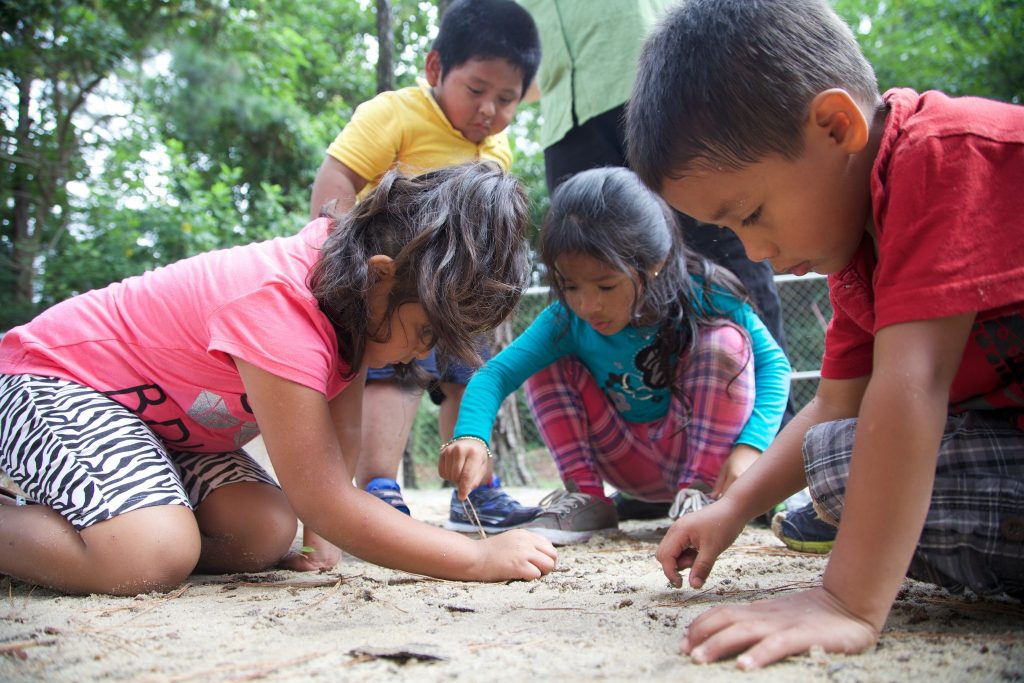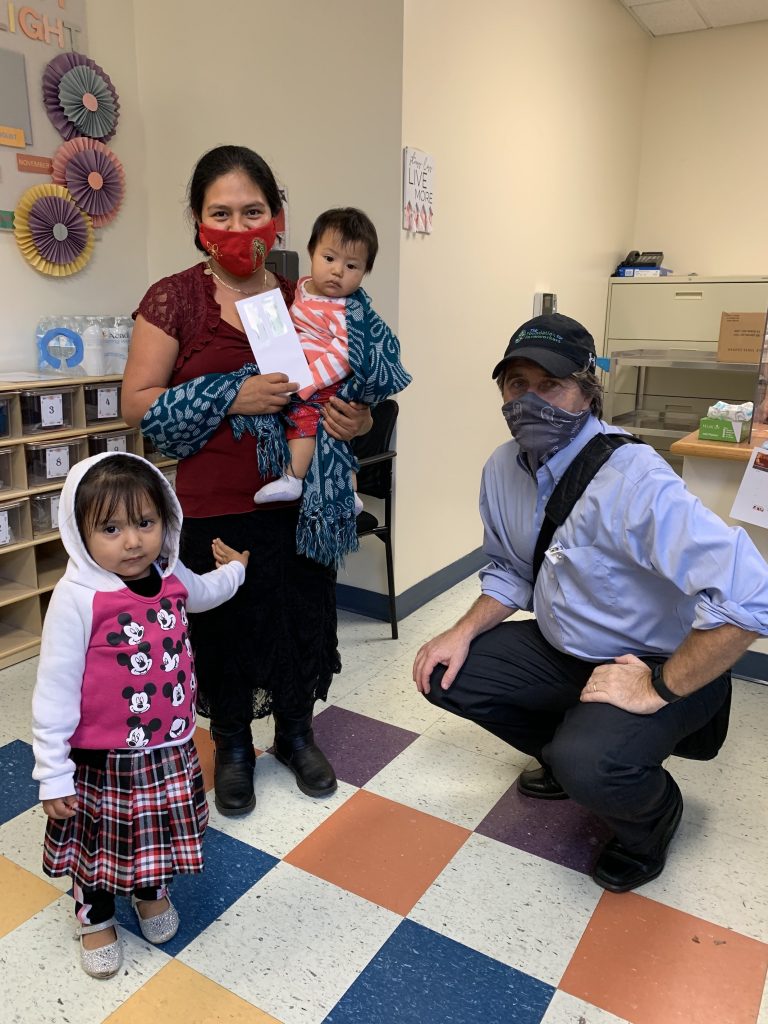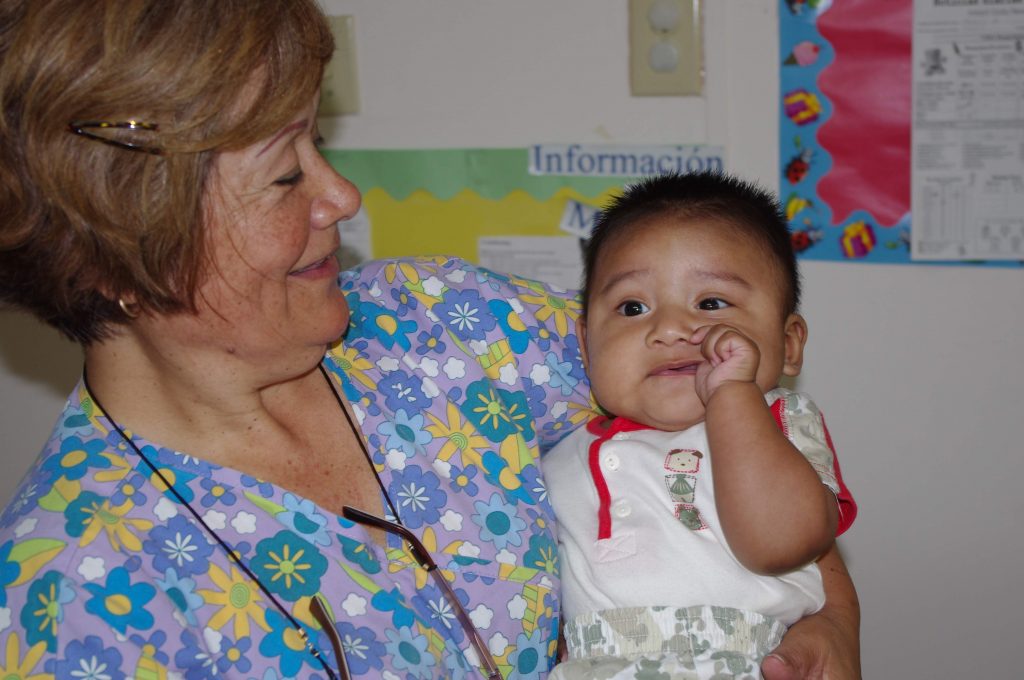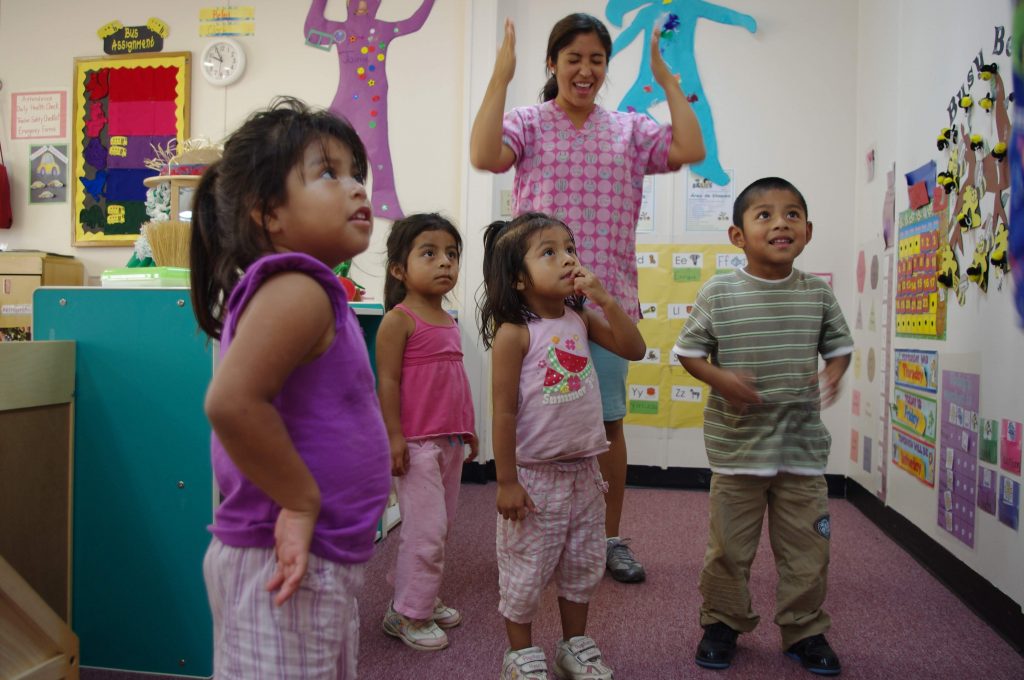Migration Matters: Serving Essential Farmworkers During the COVID-19 Pandemic
The COVID-19 pandemic has severely affected migrant farmworker communities across the United States and around the world. Despite this threat to their health, farmworkers continue their work on the front lines, planting and harvesting the crops that feed our country.
By Rebecca Scheurer, John E. Menditto Tue, Dec 15, 2020
The COVID-19 pandemic has severely affected migrant farmworker communities across the United States and around the world. Despite this threat to their health, farmworkers have continued their work on the front lines, planting and harvesting the crops that feed our country.
John E. Menditto is well-positioned to share insight into migrant farmworker communities and the challenges they’re facing. For the past 20 years, he has served as the Chief Legal Officer of East Coast Migrant Head Start Project (ECMHSP), a nonprofit that provides high-quality and comprehensive early childhood education services to farmworker families in seven states on the East Coast. Two years ago, John also founded a sister nonprofit, The Foundation for Farmworkers, which was created to fill gaps in critical services among at-risk migrant families where the federally funded ECMHSP had limitations, such as in the area of emergency cash assistance, pro bono immigration services, and need-based educational assistance grants.
Rebecca Scheurer, Director of Humanitarian Initiatives at the Adrienne Arsht-Rockefeller Foundation Resilience Center, sat down with John E. Menditto to discuss how the East Coast Migrant Head Start Project and The Foundation for Farmworkers are managing the pandemic, and how the families they serve are weathering related political and economic impacts:
Can you start by giving us a big picture look at the role of migrant farmworkers and their families in the United States?
The United States relies upon the labor of more than two million farmworkers each year to plant and harvest the fresh fruits and vegetables that nourish us. Overwhelmingly, these farmworkers have migrated to the United States from abroad; most arriving from Mexico, but migrant farmworkers come to the United States from many countries including Guatemala, Honduras, El Salvador, and Haiti to name just a few.
Migrants who arrived in the United States twenty years ago more typically came from Mexico to pursue the American Dream. Farm work was plentiful and needed. More recently, migrants have arrived from Central America and the southern states of Mexico. These farmworkers more typically have fled violence in their home country or have fled abject poverty there.
Whether farmworkers have come to pursue their American Dream or to flee conditions in their home country it is universally true that most farmworkers are undocumented. This reality means they exist in the shadows of our economy, disadvantaged in their ability to advocate for better working conditions and pay. In addition, immigration enforcement efforts in recent years have pushed farmworkers deeper into the shadows. Within the rural communities we serve, we have many, many children who have lost a parent to deportation. These children, almost all of whom are United States citizens, must now be raised by a single parent, typically a single mom.

Although most farmworkers are undocumented there is an ever-increasing population of farmworkers who have come to the United States under a special visa program for agricultural workers. H2A visa holders are often described as “single men”. This term is a misnomer. Typically, H2A visa holders have been asked to separate from their spouses and children and brought to the United States to work for most of the year. They live communally, are transported by crew buses from field to field and from state to state, lacking the freedoms and privileges that other visa holders enjoy. This especially has been true during the COVID-19 pandemic, when many farmers felt compelled to lock down their H2A workers and prohibit travel off the farm for any reason. The expansion of the H2A visa program has substantially reduced work opportunities for the farmworker families we serve.
How has COVID-19 impacted the East Coast Migrant Head Start Project and The Foundation for Farmworkers?
ECMHSP provides Head Start services to farmworker families in 38 Head Start centers located in rural communities from Lake Okeechobee, Florida to Lake Erie, Pennsylvania. Each year, we serve more than 2,300 young children, from birth to school-age, providing those children with culturally-sensitive care and preparing them for success in our public school system as a foundation for a lifetime of success and contribution to society. It is a mission that comes with the highest degree of difficulty because the challenges our families face are so great.
This year, when the pandemic hit, we were mandated to close our childcare centers. Overnight, we reinvented our work, creating a YouTube learning channel, so that our preschool children could continue to participate in educational activities from home. With hunger on the rise, we began weekly food distributions to our families and prepared individualized learning activities so children could continue to learn and develop at home.
Throughout it all, farmworkers continued to go to the fields. It is not possible for farmworkers to work remotely; they cannot Zoom to work. Their sacrifice inspired us to work tremendously hard to establish new protocols to re-open our centers in a way that was safe for children, families, and our employees. This work involved the synthesis of rules and protocols from the Centers for Disease Control, five states, and many more counties. On May 8, ECMHSP’s Guidance for the Reopening of Centers During the COVID-19 National Emergency was published. Then we thoughtfully planned the training of employees throughout the agency, and, on June 22, ECMHSP safely reopened our childcare centers. We have remained open since that date.

While there will be an end to the pandemic, farmworker families will continue to face unique challenges in the United States – how do you and your teams at ECMHSP and The Foundation for Farmworkers increase the long-term resilience of the families and wider communities you work with?
This is a great question because it goes to the heart of what the Head Start program was created to do when it was first established in 1965. Head Start is successful because the program recognizes a universal truth: that parents are the first and best teachers of their children. We look to include parents in all significant decision-making occurring at ECMHSP – from setting the hours of operation of the Head Start center, to selection of the breakfast and lunch menus for the children.In the words of the founders of the Head Start program, we seek the “maximum feasible participation” of parents. Through such participation, families can see their contributions are vital to our success.
Now, for farmworkers who often live at or near the federal poverty levels and who must labor long hours to reach those levels, there are special challenges to participating in the Head Start program. Thus, we also rely on a network of community providers to support our work. These providers include community health clinics, mental and nutritional health consultants, and legal service providers.
We understand The Foundation for Farmworkers received a very large donation of money this summer to help families. Are there any particular families you have helped with this funding who stand out?
In late July, The Foundation for Farmworkers received an anonymous donation of $1.4 million to provide emergency cash assistance to farmworker families. This was enough money for us to provide $1,000 to every farmworker family enrolled in an ECMHSP center. Being able to help families in this way has lifted the spirits of everyone at ECMHSP and The Foundation. The two families who stand out are families working in Gaffney, South Carolina. One single mom shared she and her four children were about to fall into homelessness from a lack of farm work this summer and our cash assistance would see her through another month or two. The other family was sick with COVID-19 when we made our assistance delivery. The family accepted the check from a distance.
But, to be clear, the two families in Gaffney are representative of farmworker families up and down the East Coast who have received this cash assistance. There has been a wide range of emotions from those who have been helped in this way – from surprise that there is a community of individuals who value their work and want to help, to joy from the realization that a particular family expense would be met, to tears because the cash assistance is coming at a time of particular vulnerability for the family.

What is the one thing you have learned through serving the farmworker community during the pandemic?
Farmworker families always have inspired us with their resilience. Our nation was built by migrants and continues to flourish because of it. Like millions of other people in our country, migrants come to the United States from their home countries with nothing but the hope of building a life and a community (alongside others here doing the same).
I had suspected – but didn’t know – that each of us working at East Coast Migrant Head Start Project and each of us volunteering with The Foundation for Farmworkers had the resilience within us that would make a farmworker proud. The personal sacrifices we have made at ECMHSP and The Foundation to carry on with our mission-driven work throughout the pandemic has brought us closer in spirit with the farmworker families we are privileged to serve.
Looking ahead, what’s one thing you might suggest to help people better understand, appreciate and embrace migrant farmworkers and their families as valuable members of our society?
We have a collective nostalgia for “the way things were.” In truth, the way things were are much like the way things are. We always have been a nation of immigrants, made stronger and richer by individuals from around the world contributing their work and their resilience to enhance our society.

The Adrienne Arsht Rockefeller Foundation Resilience Center aims to reach one billion people with solutions to climate, migration, and human security challenges by 2030. The Center’s ‘Migration Matters’ blog series aims to raise awareness around migration issues and promote positive aspects that come from inclusive societies. Hosted by Rebecca Scheurer, as the Center’s Director of Humanitarian Initiatives, this blog series invites guests to share perspectives about migration from personal experiences and highlight solutions that empower and protect some of the most at-risk people around the world.